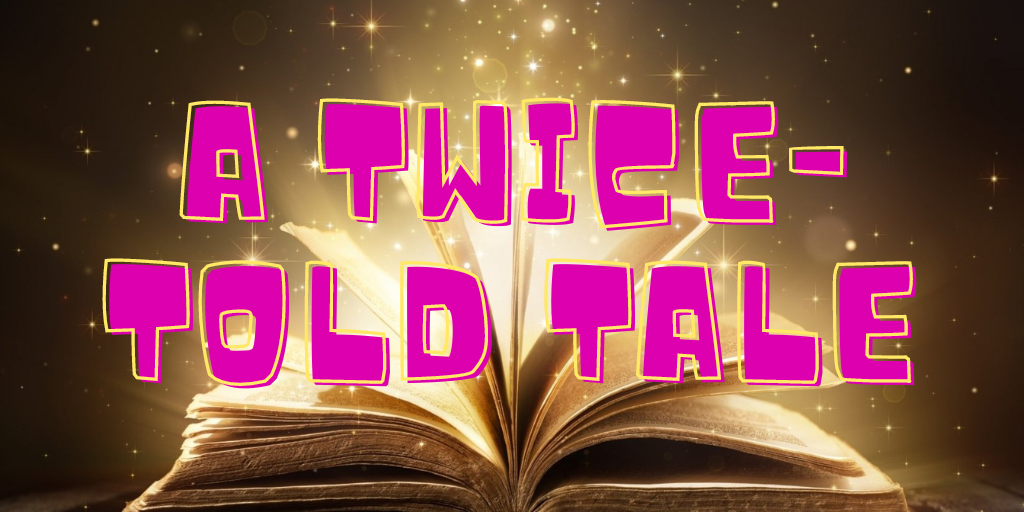“A twice-told tale” refers to a story or narrative that has been recounted or retold multiple times, often losing its original freshness, impact, or authenticity with each repetition.
At its core, “a twice-told tale” conveys the idea of redundancy or repetitiveness, highlighting how the same narrative can lose its power to captivate or engage when revisited too often. Moreover, “a twice-told tale” may also symbolize the human tendency to cling to familiar narratives or experiences, even when they no longer hold the same significance or resonance. It serves as a reminder of the importance of seeking fresh perspectives and embracing new stories to prevent stagnation and ensure continued growth and learning.
The origin of “A twice-told tale”
The idiom “a twice-told tale” originates from Act 1, Scene 1 of William Shakespeare’s play King John, written in the late 16th century. In this scene, Philip the Bastard, a cynical and outspoken character, speaks the line “Life is as tedious as a twice-told tale.” He delivers this line while expressing his dissatisfaction with the predictability and monotony of life.
The context of Philip’s statement reflects his disillusionment with the world around him and his disdain for the conventional expectations and norms of society. By likening life to a “twice-told tale,” he suggests that existence has become repetitive and tiresome, devoid of novelty or excitement.
Shakespeare’s use of this phrase serves to highlight Philip’s cynical worldview and his inclination to view life through a lens of scepticism and disillusionment. It captures the sentiment of existential dissatisfaction that pervades Philip’s character throughout the play, setting the tone for his rebellious and irreverent attitude towards authority and tradition.

A twice-told tale
“A twice-told tale” in the media
The idiom “a twice-told tale” permeates various forms of media, often serving as a motif to convey themes of repetition, familiarity, and the passage of time. In literature, authors employ it to underscore the monotony of everyday life or the diminishing impact of a recurring narrative. Filmmakers use it to explore the concept of déjà vu or the cyclic nature of history. Moreover, the idiom frequently appears as a title for books, movies, and other artistic works, signalling a narrative that revisits familiar territory or offers a fresh perspective on a classic story, inviting audiences to reconsider familiar themes through a new lens.
A famous example of that is Nathaniel Hawthorne’s “Twice-Told Tales,” published in 1837. Hawthorne employs the idiom directly as the title of his collection of short stories. This choice underscores the recurring themes and motifs found within the tales, emphasizing the idea of storytelling as a cyclical and repetitive endeavour. Similarly, in film, titles such as “Twice-Told Tales” (1963), a horror anthology directed by Sidney Salkow, with Vincent Price, based on Hawthorne’s collection, directly invoke the idiom to suggest narratives that revisit familiar tropes and themes. These examples demonstrate how the idiom permeates both literature and film, serving as a meta-commentary on the nature of storytelling itself.
In other literature and film, authors such as William Faulkner in “Absalom, Absalom!” and Gabriel García Márquez in “One Hundred Years of Solitude” utilize the idiom to depict generational sagas, where familial histories are retold and reshaped across time, highlighting the cyclical nature of human experience. Filmmakers like Christopher Nolan in “Inception” employ it metaphorically, where characters navigate through layers of dreams, experiencing a reality that feels like a “twice-told tale” due to its recursive nature.
Using “A twice-told tale” in sentences
- As the old librarian recounted the legend of the lost city for the umpteenth time, the travellers exchanged knowing glances, silently acknowledging that it had become nothing more than a twice-told tale.
- In the bustling marketplace, vendors hawked their wares with rehearsed enthusiasm, their sales pitches falling on indifferent ears, like a twice-told tale.
- As the politician delivered yet another speech filled with empty promises, the audience sighed collectively, weary of hearing the same rhetoric—a tired, twice-told tale of political ambition.
- The actress recited her lines with practiced precision, her performance lacking the passion and spontaneity it once possessed, rendering the play nothing more than a twice-told tale on stage.
- Amidst the crumbling ruins of the ancient city, the tour guide regaled visitors with stories of bygone glory, but to the archaeologists present, staring at the pile of ruined walls, his speech was merely a twice-told tale.
Synonyms for “A twice-told tale”
- A familiar narrative
- A well-worn story
- The same old story
- An oft-repeated story
- A recurrent narrative
- A repetitive anecdote
- A retold legend
- A stale narrative
- A recurring tale
- A redundant story




Leave a Reply
Want to join the discussion?Feel free to contribute!